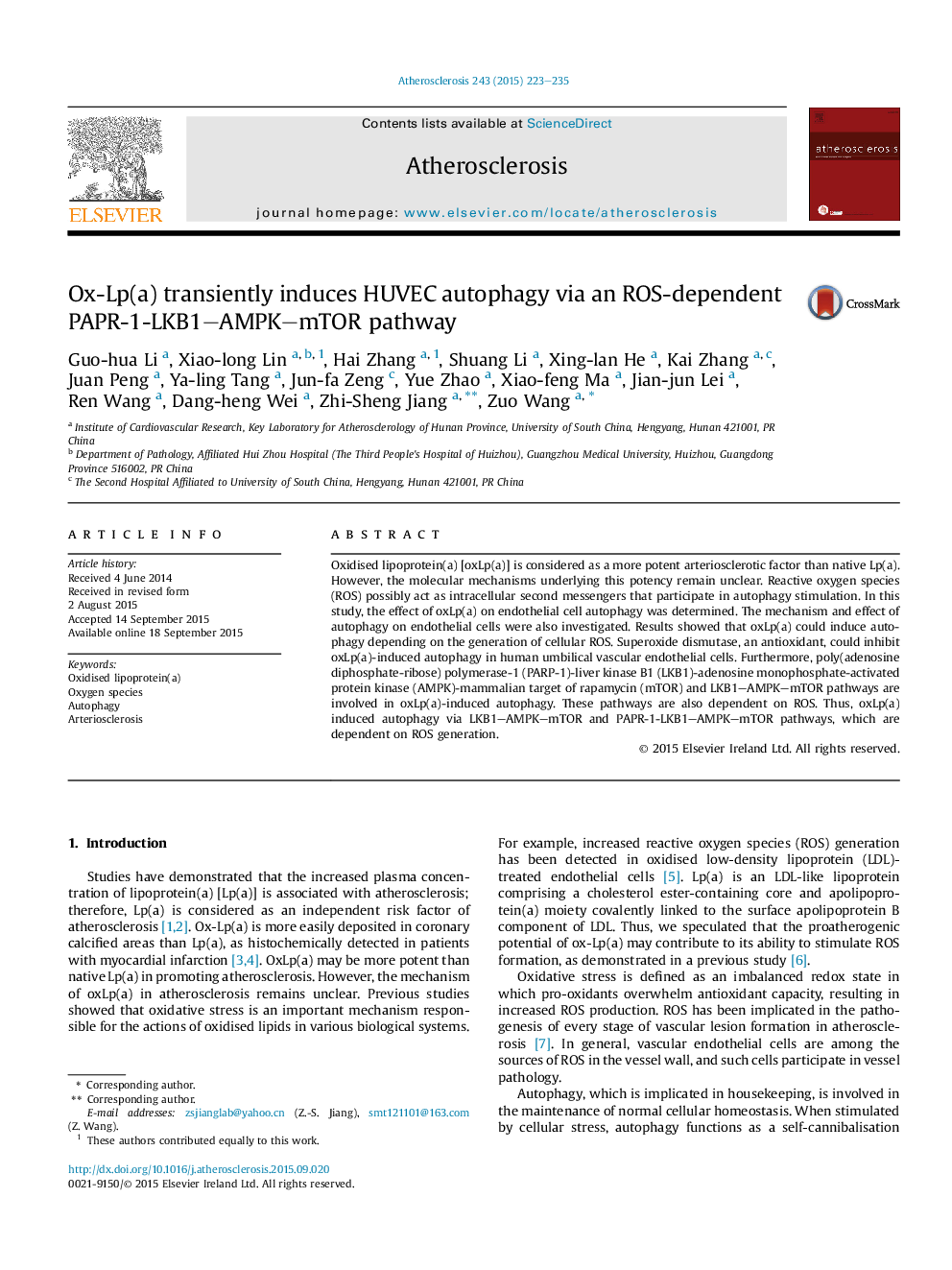| کد مقاله | کد نشریه | سال انتشار | مقاله انگلیسی | نسخه تمام متن |
|---|---|---|---|---|
| 5944124 | 1172342 | 2015 | 13 صفحه PDF | دانلود رایگان |
عنوان انگلیسی مقاله ISI
Ox-Lp(a) transiently induces HUVEC autophagy via an ROS-dependent PAPR-1-LKB1-AMPK-mTOR pathway
دانلود مقاله + سفارش ترجمه
دانلود مقاله ISI انگلیسی
رایگان برای ایرانیان
موضوعات مرتبط
علوم پزشکی و سلامت
پزشکی و دندانپزشکی
کاردیولوژی و پزشکی قلب و عروق
پیش نمایش صفحه اول مقاله

چکیده انگلیسی
Oxidised lipoprotein(a) [oxLp(a)] is considered as a more potent arteriosclerotic factor than native Lp(a). However, the molecular mechanisms underlying this potency remain unclear. Reactive oxygen species (ROS) possibly act as intracellular second messengers that participate in autophagy stimulation. In this study, the effect of oxLp(a) on endothelial cell autophagy was determined. The mechanism and effect of autophagy on endothelial cells were also investigated. Results showed that oxLp(a) could induce autophagy depending on the generation of cellular ROS. Superoxide dismutase, an antioxidant, could inhibit oxLp(a)-induced autophagy in human umbilical vascular endothelial cells. Furthermore, poly(adenosine diphosphate-ribose) polymerase-1 (PARP-1)-liver kinase B1 (LKB1)-adenosine monophosphate-activated protein kinase (AMPK)-mammalian target of rapamycin (mTOR) and LKB1-AMPK-mTOR pathways are involved in oxLp(a)-induced autophagy. These pathways are also dependent on ROS. Thus, oxLp(a) induced autophagy via LKB1-AMPK-mTOR and PAPR-1-LKB1-AMPK-mTOR pathways, which are dependent on ROS generation.
ناشر
Database: Elsevier - ScienceDirect (ساینس دایرکت)
Journal: Atherosclerosis - Volume 243, Issue 1, November 2015, Pages 223-235
Journal: Atherosclerosis - Volume 243, Issue 1, November 2015, Pages 223-235
نویسندگان
Guo-hua Li, Xiao-long Lin, Hai Zhang, Shuang Li, Xing-lan He, Kai Zhang, Juan Peng, Ya-ling Tang, Jun-fa Zeng, Yue Zhao, Xiao-feng Ma, Jian-jun Lei, Ren Wang, Dang-heng Wei, Zhi-Sheng Jiang, Zuo Wang,